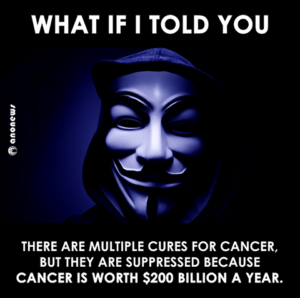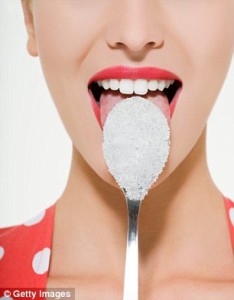 I’m too busy to have cancer! With a full-time job, house, social life, dating, cycling and traveling, how do you put it all on pause for an illness? Back in 2007, I was burning the candle at both ends. I felt so tired and achy all of the time, so I stopped exercising because I didn’t have the energy. It seemed to all spiral down after that.
I’m too busy to have cancer! With a full-time job, house, social life, dating, cycling and traveling, how do you put it all on pause for an illness? Back in 2007, I was burning the candle at both ends. I felt so tired and achy all of the time, so I stopped exercising because I didn’t have the energy. It seemed to all spiral down after that.
In August 2007, I kept having pains in my chest, but when I went to the doctor, he said maybe I hurt myself at the gym, bruised some cartilage or it might be a strain. He gave me pain pills and told me it might take some time. Nothing abnormal showed up on the x-ray. The doctors were focusing on my bones, though, not my lungs. Continue reading

 What are you doing to lower your risk of cancer? Perhaps you’re going out of your way to get organic food to avoid the cancer risks associated with pesticides, or maybe you’re using natural cleaning products around your house. You might be making a conscious effort to consume more superfoods and get more exercise, but are you keeping tabs on your vitamin D levels? This often-overlooked factor is linked to your cancer risk in a
What are you doing to lower your risk of cancer? Perhaps you’re going out of your way to get organic food to avoid the cancer risks associated with pesticides, or maybe you’re using natural cleaning products around your house. You might be making a conscious effort to consume more superfoods and get more exercise, but are you keeping tabs on your vitamin D levels? This often-overlooked factor is linked to your cancer risk in a  He’ll take “awareness” for $1,000.
He’ll take “awareness” for $1,000. Modern life is killing children with the number of youngsters diagnosed with cancer rising 40 per cent in the past 16 years because of air pollution, pesticides, poor diets and radiation, scientists have warned.
Modern life is killing children with the number of youngsters diagnosed with cancer rising 40 per cent in the past 16 years because of air pollution, pesticides, poor diets and radiation, scientists have warned.  Immunotherapy has been a boon to those suffering from severe cancers. The science has been so transformative that just last year, three pioneering researchers won the Nobel Prize for their discoveries in the underlying immunological mechanisms that make immunotherapy drugs possible. Though for as much success as these interventions have had, there is still a segment of the population that is resistant to the drugs and their beneficial effects, and unfortunately, scientists have had difficulties nailing down the reasons why.
Immunotherapy has been a boon to those suffering from severe cancers. The science has been so transformative that just last year, three pioneering researchers won the Nobel Prize for their discoveries in the underlying immunological mechanisms that make immunotherapy drugs possible. Though for as much success as these interventions have had, there is still a segment of the population that is resistant to the drugs and their beneficial effects, and unfortunately, scientists have had difficulties nailing down the reasons why. 

 This summer on my journey through 40 states on my bike, I saw a lot of America. I talked to countless Americans along the way. I saw things that disturbed me, even upset me and forever rendered me sober as to the challenges Americans face in the 21st century.
This summer on my journey through 40 states on my bike, I saw a lot of America. I talked to countless Americans along the way. I saw things that disturbed me, even upset me and forever rendered me sober as to the challenges Americans face in the 21st century. Because I just lost my dear friend and sister-in-law to cancer treated with surgery, chemo and immunotherapy this spring, this topic remains hot on my mind.
Because I just lost my dear friend and sister-in-law to cancer treated with surgery, chemo and immunotherapy this spring, this topic remains hot on my mind. Cutting back on sugar may help decrease your likelihood of getting certain cancers, a recent study noted. The finding, which was part of an investigation made by researchers from Duke-NUS Medical School and the National University of Singapore, together with the Duke University School of Medicine and the Medical University of Vienna, is part of a unique approach explaining how reducing sugar can cause cancer cells to die.
Cutting back on sugar may help decrease your likelihood of getting certain cancers, a recent study noted. The finding, which was part of an investigation made by researchers from Duke-NUS Medical School and the National University of Singapore, together with the Duke University School of Medicine and the Medical University of Vienna, is part of a unique approach explaining how reducing sugar can cause cancer cells to die.
 When it comes to sticking to a healthy diet, disease-fighting mushrooms check off all the boxes: They’re low in carbohydrates and calories, but a great source of B vitamins, trace minerals, fiber and even protein. Mushrooms are also an
When it comes to sticking to a healthy diet, disease-fighting mushrooms check off all the boxes: They’re low in carbohydrates and calories, but a great source of B vitamins, trace minerals, fiber and even protein. Mushrooms are also an  Ginger has been used as both food and medicine for thousands of years.
Ginger has been used as both food and medicine for thousands of years.
